News, Resources & Information from the world of AI Narratives
Filter by Category
Filter by Author
Imagining AI is a new collection edited by Stephen Cave, CFI’s Director, and Kanta Dihal, recently Senior Research Fellow at CFI and now Lecturer in Science Communication at Imperial College London. Published by Oxford University Press (OUP), it draws attention to the range and variety of visions of a future with intelligent machines from around the world.
Narratives about intelligent machines can influence the development, adoption, reception and regulation of artificial intelligence (AI). The Middle East and North Africa (MENA) region is hugely overlooked by the Western mainstream when it comes to discussing the future of artificial intelligence. Recognizing the vital importance of diversity in the global debate on what AI is and should be, this report examines the narratives about technological futures spreading in the Arab world.
A fascinating community of scholars, thinkers, and creators working at the intersections of technology, automation, and futures emerged in Central and Eastern Europe after the Second World War. On the one hand, there were those studying technology as a means of streamlining production and automation in a centralised economy, and enhancing citizen surveillance. On the other, there were the dissenting voices that relied on fictional accounts of technological futures to criticise the authoritarian regimes.
In November and December 2020 the Leverhulme Centre for the Future of Intelligence (CFI) at the University of Cambridge joined forces with the Center for Chilean Literature Studies at The Pontificia Universidad Católica de Chile to conduct a series of three workshops devoted to AI Narratives in Latin America. Originally planned as an in-person, two-day event in April 2020 which was postponed due to the COVID-19 pandemic, GAIN Latin America shifted to a virtual format which showcased the work of more than twenty researchers, academics, practitioners and artists working in the field of AI narratives.
The need to break through the barriers between and within the sciences and social sciences was a central theme at the Science Forum, co-hosted by the Department of Science and Innovation and the Human Sciences Research Council (HSRC). The event itself, a virtual undertaking, brought together thinkers of multiple disciplines, across Africa and internationally.
At a recent virtual workshop on African narratives of AI, digital policy researcher Chenai Chair argued that AI policies need to consider gendered realities and ensure that injustices are not replicated as we race towards a digital world. The workshop, co-hosted by the University of Cambridge and the HSRC as part of the Leverhulme Centre for the Future of Intelligence’s project on Global AI Narratives, brought together thinkers across sub-Saharan Africa to explore modalities and perceptions of AI in Africa today.
India is a linguistically diverse country, and the literary traditions of different languages often exist independently and in relative isolation from one another. This is especially true of a genre like science fiction, which has not been in the literary mainstream of many languages. Hidden under the citadels of highbrow literature, science fiction in different Indian languages has had the opportunity to develop different trajectories and different forms.
The two-day Global AI Narratives in India workshop covered an array of topics ranging from the representation of AI in Indian science fiction (panel 1) and the diverse linguistic literary traditions in India (panel 4), to the history and philosophy of AI in India (panel 2) and the controversial implementation of the Aadhaar biometric identification program (panel 3). This blog post discusses the highlights of each panel.
Call for Papers: Critical Borders: Radical (Re)visions of AI
19th and 20th October 2021
The aim of this conference is to critically interrogate issues of bordering in artificial intelligence (AI). This conference examines both how AI operates at material borders, including national and bodily borders, and how AI produces or transgresses imagined, theoretical and ideological borders, such as categories of race, gender, age and class.
The third workshop of the GAIN China series explored how the Chinese public understands artificial intelligence; how the media, industry, and government influence the Chinese publics’ perceptions of AI; and what the West can learn from approaches to understanding and discussing AI in China.
2021 marks a double anniversary in Eastern European science fiction. First, it marks the 100-year anniversary of the birth of Stanisław Lem (1921-2006), a Polish science fiction writer and philosopher. Second, the word ‘robot’ was used for the first time exactly a century ago, in the play R.U.R. (Rossum's Universal Robots), which premiered on 25 January 1921. The Global AI Narratives workshop held on 15th January was a celebration of these two centenaries.
The third Chinese Global AI Narratives workshop, featuring a number of Chinese science fiction scholars and authors, explored how AI is portrayed in Chinese science fiction literature.
Narratives of AI have a deeply rooted history in Central and Eastern Europe. Central to these narratives is the Golem, a legendary clay creature dating back to the 16th century.
Which groups have a voice in the AI debate? Who is most adversely affected by the deployment and use of these technologies? And who may be left behind entirely in an AI future?
Differences in Eastern versus Western beliefs in celestial beings as integral to informing our modern treatment of AI… In western thought supernatural beings are often dark, scary, or evil (e.g. ghost, spirits, daemons, monsters). They are something to be defeated. By contrast, in Chinese mythology supernatural beings are often positive forces with whom humans can interact and communicate. If treated well by humans, the supernatural being might bestow blessings on a human.
The overwhelming ‘Whiteness’ of artificial intelligence – from stock images and cinematic robots to the dialects of virtual assistants – removes people of colour from humanity's visions of its high-tech future.
Audio Recording with Stephen Cave, Sarah Dillon, Beth Singler, Kanta Dihal
Edited Volume by Stephen Cave, Kanta Dihal, Sarah Dillon
This paper focuses on the fact that AI is predominantly portrayed as white—in colour, ethnicity, or both.
Magazine article in Research Horizons (2018) by Sarah Dillon, Kanta Dihal, Beth Singler
In light of the current COVID-19 pandemic, many of us are experiencing either voluntary or government mandated lockdown. The Global AI Narratives team have come to the rescue with a rundown of the best AI-related activities to keep you sane over the coming weeks.
In the newly released AI Narratives: A history of imaginative thinking about intelligent machines from Oxford University Press, Stephen Cave, Kanta Dihal, and Sarah Dillon have brought together leading work from across disciplines that explores the powerful influence human stories about intelligent machines have on the AI landscape.
Welcome to the website of the Global AI Narratives (GAIN) research project. In this introductory post, we show you what this project aims to do and how you can stay up to date.
For all of you out there looking for a brief respite from the festivities (or a last minute gift for the sci-fi geek in your life), here is the Global AI Narratives team’s personal recommendations for AI-inspired escapism this Christmas, complete with a handy ‘Robots’ rating.
the GAIN workshop in Cairo aimed to set up a new intellectual space for researchers, artists and technologists working on AI in the Middle East and North Africa, and allow them to not only deliberate over how the vision of technology spreading in the Arab world might differ from that dominating in the West – but also how this vision can shape the development and future use of AI globally.



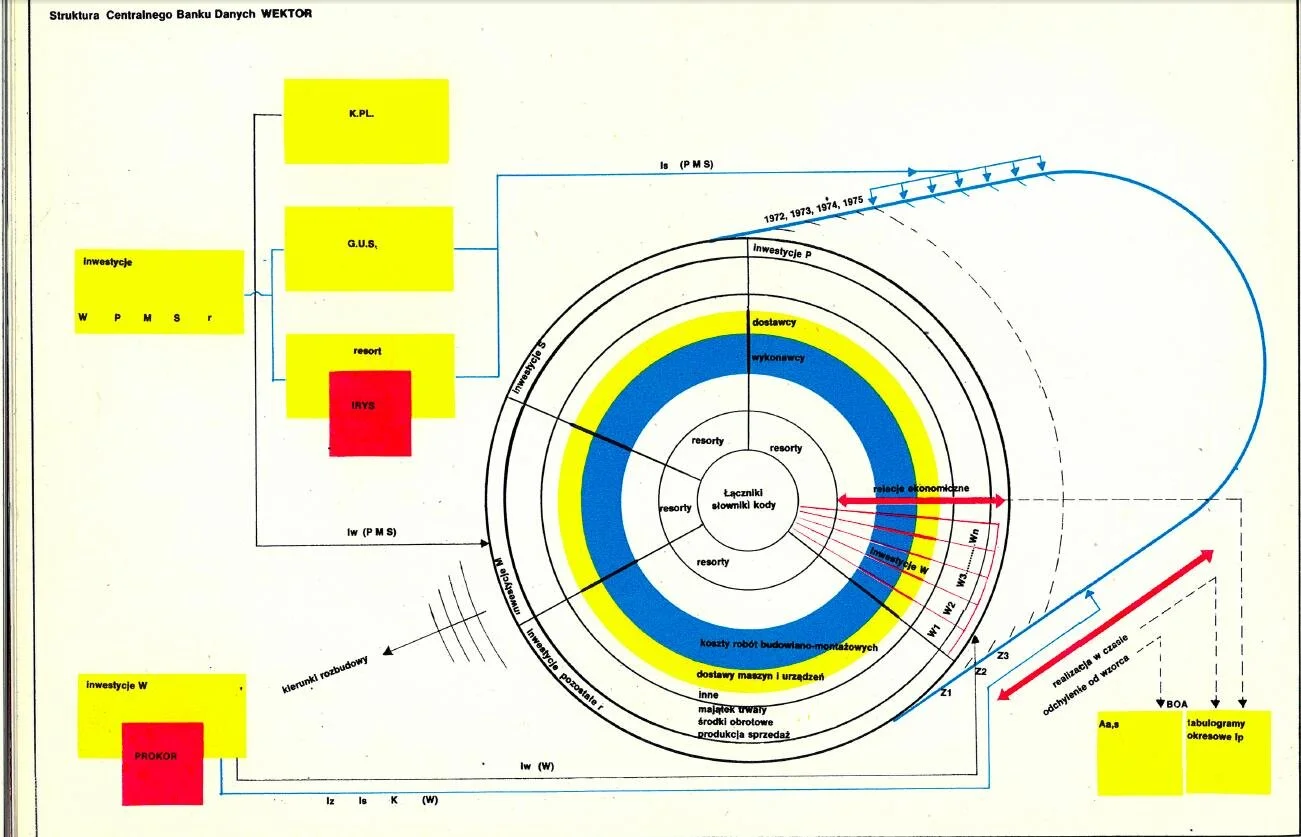
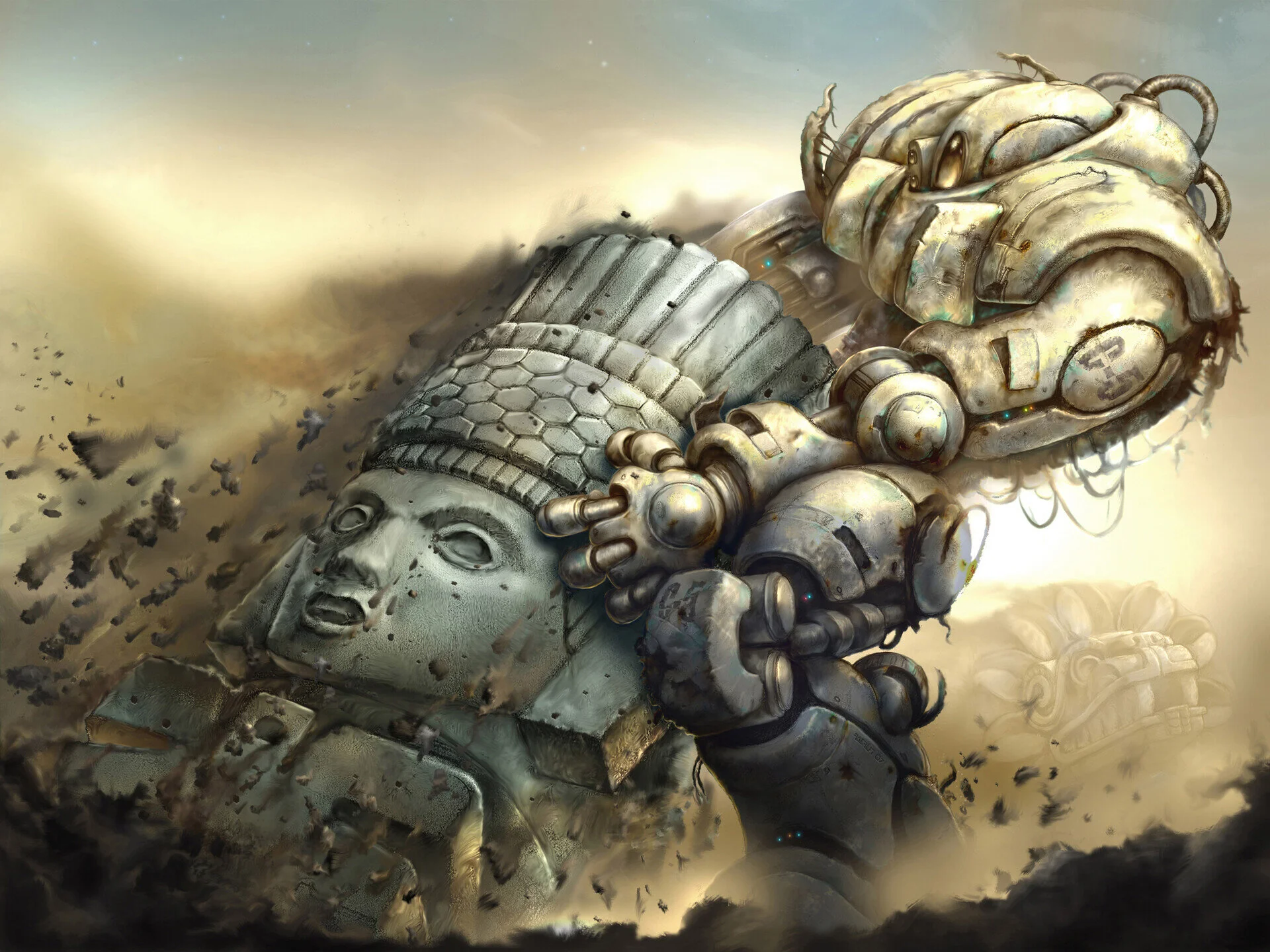

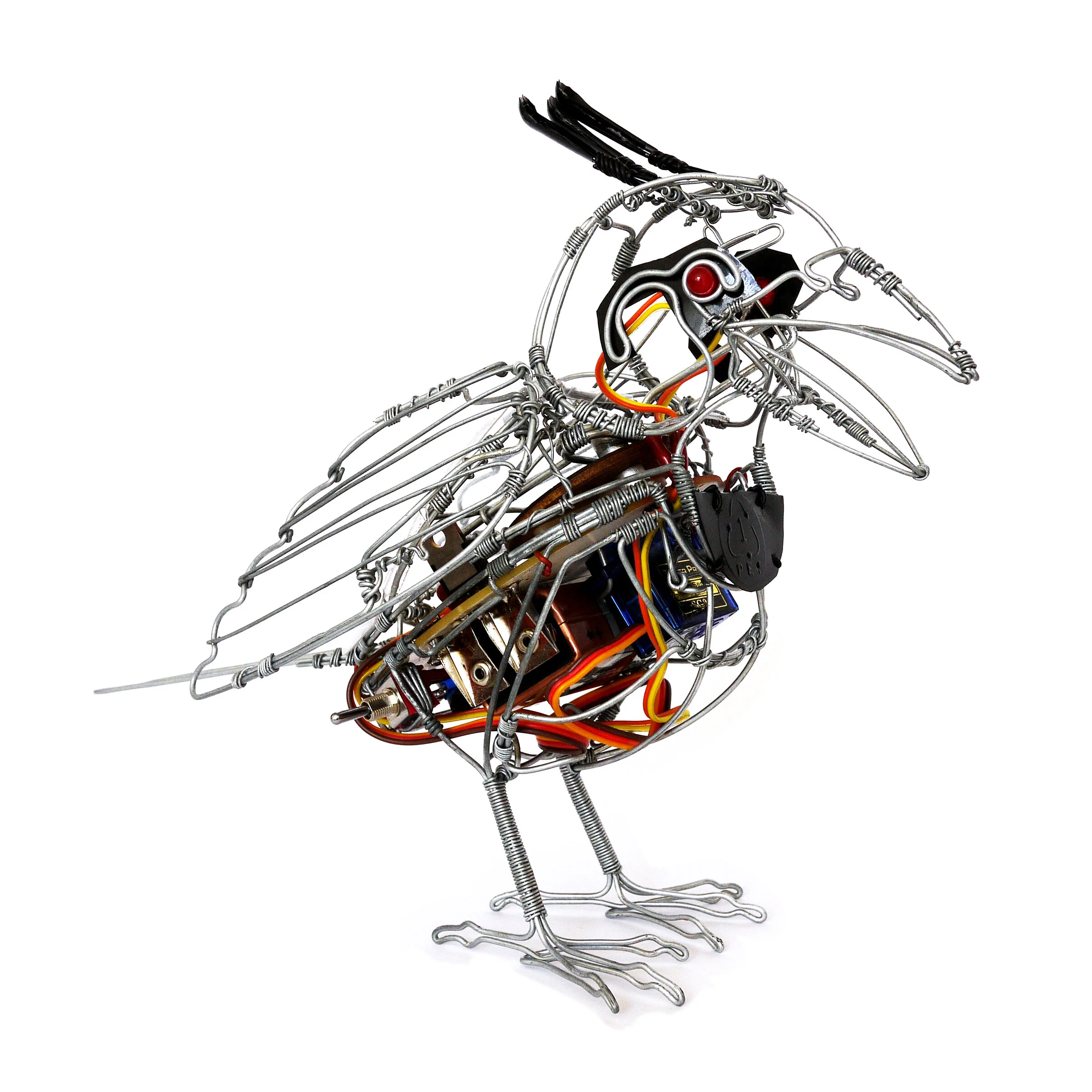

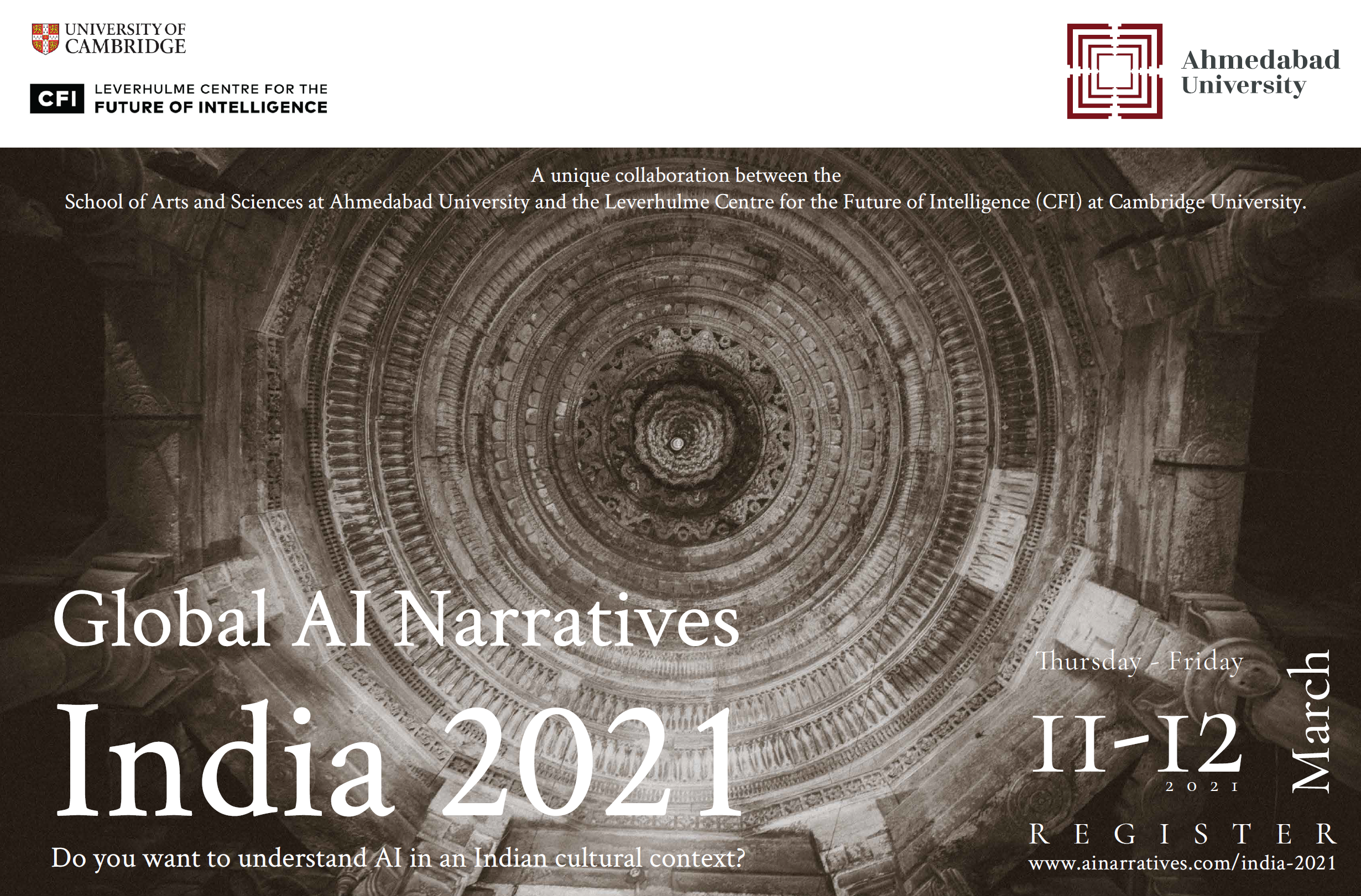









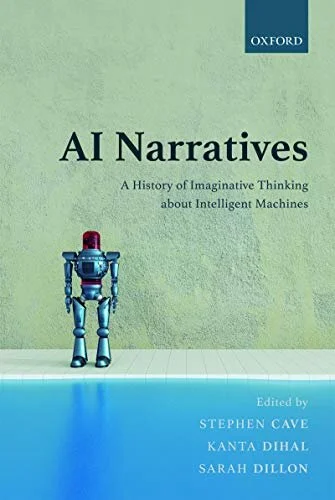
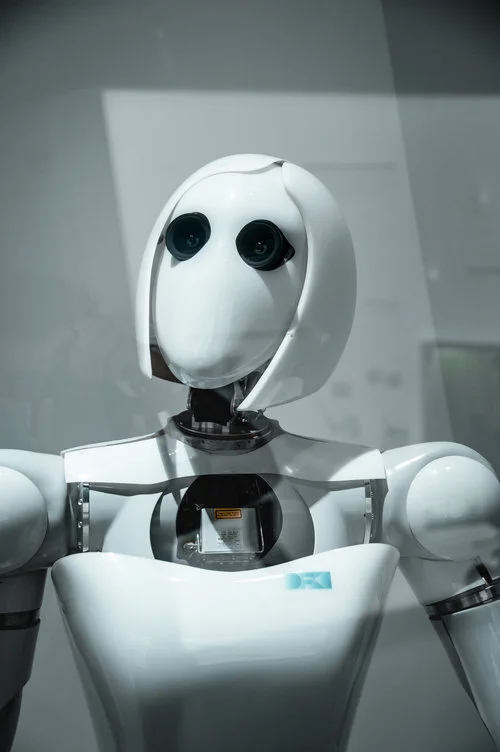





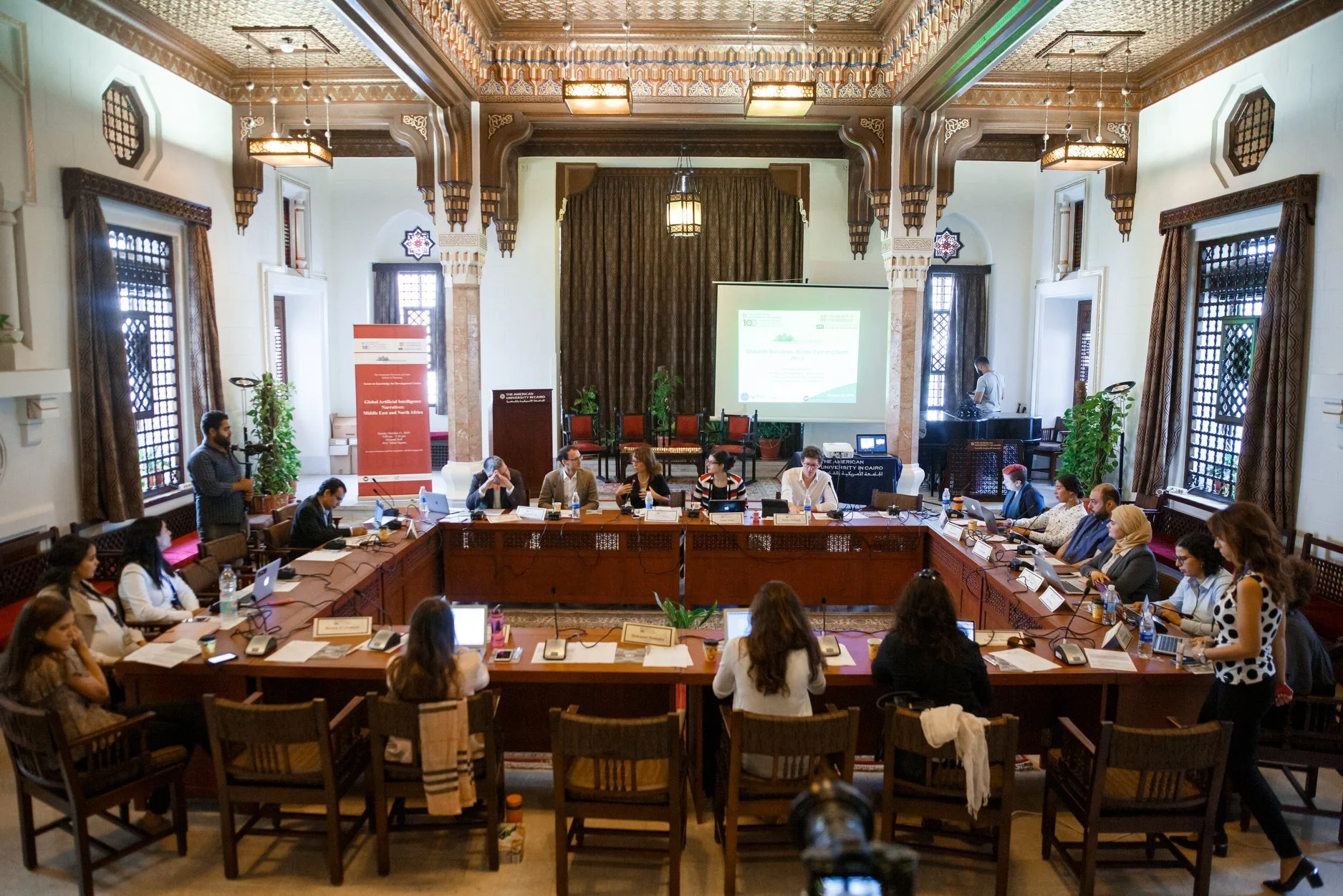
The Global AI Narratives team, along with local partner Teplitsa of Social Technologies, convened a workshop in Saint Petersburg, Russia, on the 12th and 13th of September 2019.